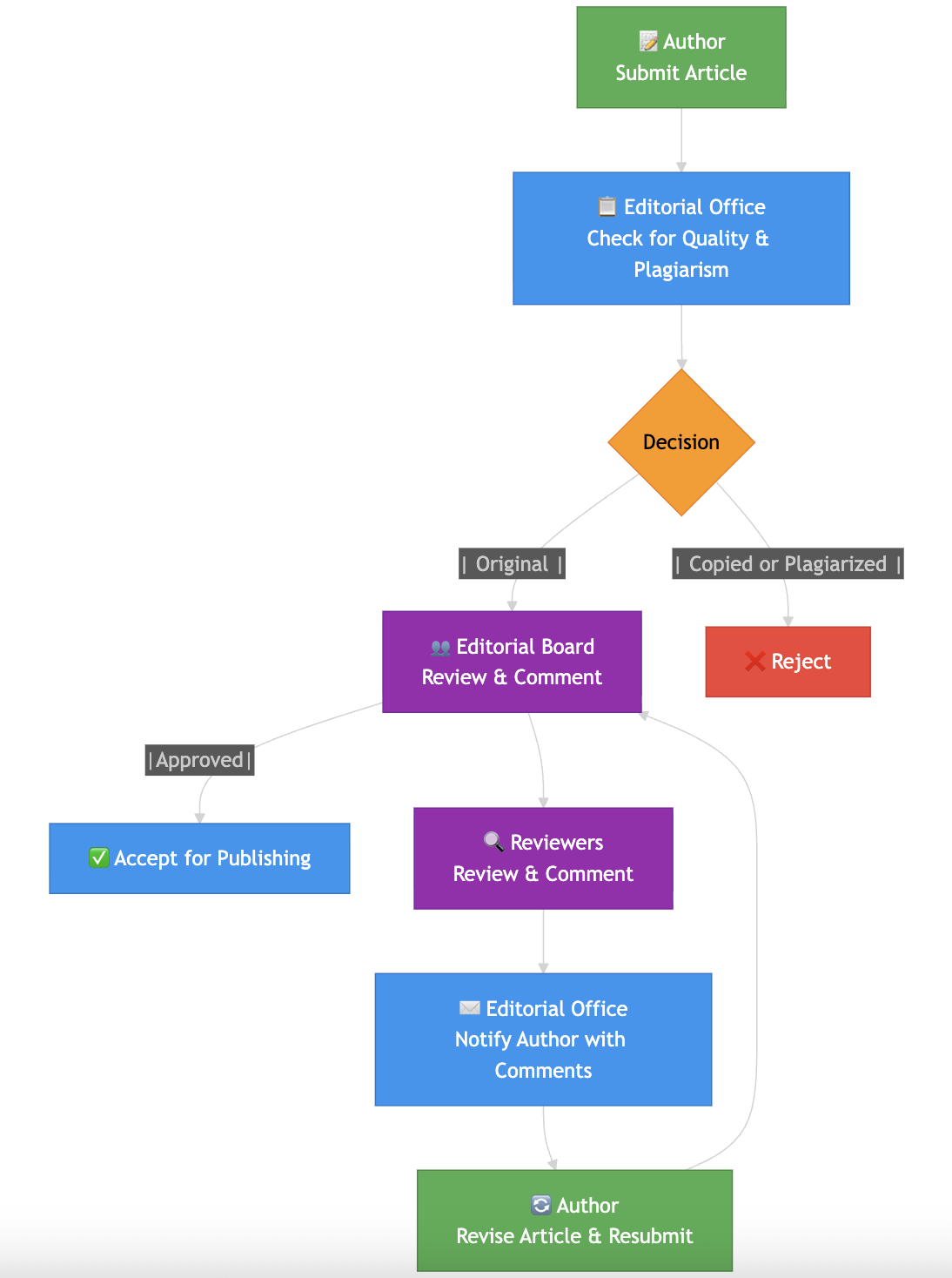About the Journal
In our rapidly evolving and interconnected world, understanding the expanding landscape of Intelligent Computing and Multidisciplinary has become more important than ever. The fusion of advanced computational technologies with diverse scientific and societal domains continually challenges the boundaries of traditional academic disciplines. As digital systems, global industries, scientific discovery, and societal needs advance, research priorities reflect a complex interplay of technological innovation, environmental conditions, human behavior, and organizational dynamics. This evolving environment demands new approaches that rely on intelligent systems capable of adapting to complexity and delivering meaningful insights.
Intelligent computing-covering artificial intelligence, machine learning, deep learning, neural networks, data science, cognitive computing, automation, and computational modeling-now plays a central role across computer science, engineering, social sciences, natural sciences, and applied research fields. These technologies drive progress in areas such as algorithm optimization, robotics, human-computer interaction, cybersecurity, big data analytics, natural language processing, computer vision, digital transformation, cloud and edge computing, distributed systems, and quantum computing. As these domains develop, researchers also explore the cognitive, behavioral, and ethical dimensions of technology, enhancing the human-centered nature of intelligent systems and ensuring responsible implementation.
At the same time, the study of intelligent computing extends into the broader spectrum of academic fields, including electrical and electronics engineering, mechanical and civil engineering, mechatronics, environmental engineering, industrial engineering, transportation systems, and smart energy technologies. Scientific disciplines such as applied mathematics, operations research, optimization theory, computational statistics, bioinformatics, computational physics, and computational chemistry provide critical foundations for building high-performance models and analytical frameworks. In health and life sciences, areas such as biomedical engineering, medical imaging, health informatics, digital health, telemedicine, biostatistics, neuroscience, and brain-computer interfaces demonstrate how intelligent computing supports diagnosis, treatment, and scientific discovery.
The reach of intelligent computing also extends into business, economics, and management through financial technology, business intelligence, risk modeling, supply-chain optimization, innovation management, entrepreneurship research, and management information systems. In the humanities and social sciences, fields such as digital humanities, computational social science, cognitive psychology, educational technology, social network analysis, ergonomics, and the ethics of artificial intelligence enrich our understanding of how technology intersects with culture, behavior, and society. Environmental and earth sciences benefit as well, as researchers apply intelligent computing to climate informatics, environmental modeling, agricultural informatics, geospatial analysis, and sustainable technology development-areas vital for addressing global environmental challenges.
The Journal of Intelligent Computing and Multidisciplinary embraces this expansive and interconnected landscape by offering an open-access platform for students, practitioners, academics, and researchers working across these diverse fields. The journal welcomes original, high-impact contributions that advance intelligent computing and its applications across sciences, engineering, humanities, health, business, and environmental studies. By supporting a wide range of subjects, the journal fosters collaboration and encourages the development of innovative solutions that cut across conventional boundaries.
Peer-reviewed publications serve as essential resources for both academic and industry communities, helping researchers stay informed about the latest technologies, methodologies, and theoretical advancements. As a respected digital resource, the Journal of Intelligent Computing and Multidisciplinary promotes global knowledge sharing through timely publication and open scientific dialogue. Its fair and efficient review process ensures that manuscripts submitted through its Online Submission System are evaluated by qualified editorial board members or external experts, with acceptance requiring the approval of at least two reviewers and the editor.
Authors are requested to submit manuscripts online at Submit Manuscript or Send as an e-mail attachment to the Editorial Office at support@globalmeetx.com
Rapid Publication Service
Globalmeetx Publishing is offering wide range of opportunities, options and services for the prospective authors to publish their scholarly contributions.
The journal caters to the demands of the fast publication without compromising on the editorial quality including manuscript peer-review. This flexibility is being provided to ensure earliest author credibility to their respective contributions and this will also ensure timely dissemination of research outcomes for efficient integration, effective translation and reduced redundancy.
Authors have the option to choose between the standard open access publication service which takes its own course of time for complete publication process or can opt for rapid publication service wherein the article is published at the earliest date (Includes multiple subject experts commissioning for securing earliest peer-review comments). The authors can avail this flexibility based on the personal preference, funding agency guidelines or Institutional or organizational requirements.
Regardless of the option, all manuscripts undergo thorough peer-review process, editorial assessment and production process.
Fast Editorial Execution and Review Process (FEE-Review Process)
Authors who are willing to publish their articles under this mode can make a pre-payment of $99 towards express peer-review and editorial decision. First editorial decision in 3 days and final decision with review comments in 5 days from the date of submission. Galley proof generation will be done in next 2 days from acceptance or maximum 5 days (For manuscripts notified for revision by external reviewer).
Manuscripts accepted for publication will be charged regular APC.
Authors retain the copyright of their publication and the final version of the article will be published in both HTML and PDF formats as well as XML formats for transmitting to indexing databases. The editorial team of the Journal will ensure adherence to scientific publication guidelines.
JOURNAL PARTICULARS
| Title | Journal of Intelligent Computing and Multidisciplinary |
|---|---|
| Frequency | Tri-Annual (Three issues per year) |
| ISSN | Coming Soon |
| Publisher Name | Globalmeetx Publishing |
| Publisher Address | Radha Residency, 4th Floor, Sai Priya Gardens, Madhurawada, Visakhapatnam, 530041, Andhra Pradesh, India |
| Starting Year | 2025 |
| Subject | Computer Science |
| Language | English |
| Publication Format | Online |
| support@globalmeetx.com | |
| Mobile No | (+91) 9177731784 |
Current Issue Highlights
Coming soon
Submit Manuscript
Submit manuscript at Online Submission System or send as an e-mail attachment to the Editorial Office at support@globalmeetx.com


